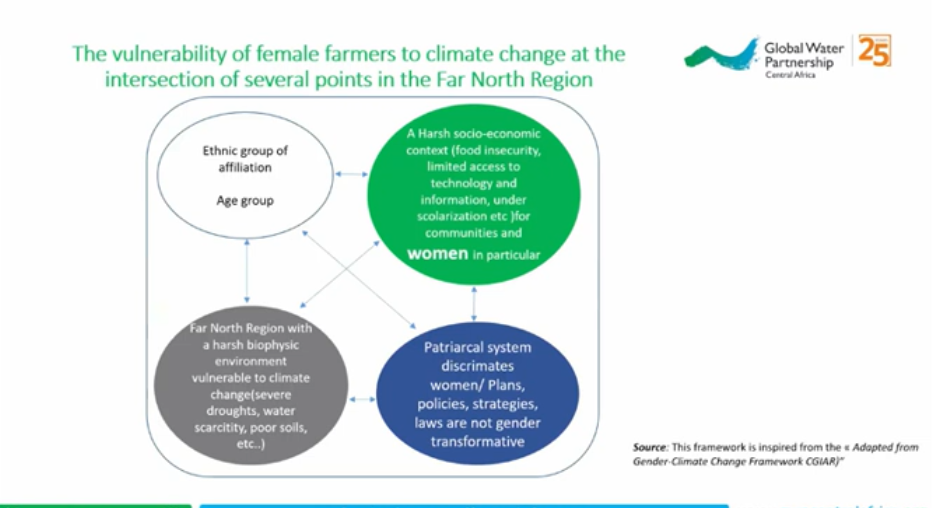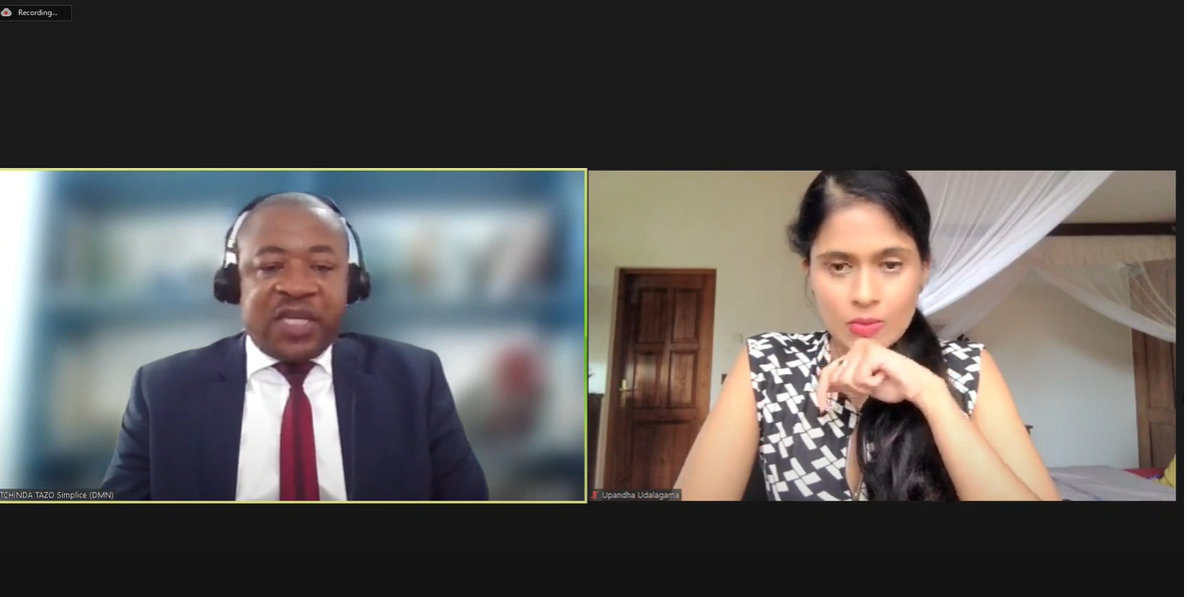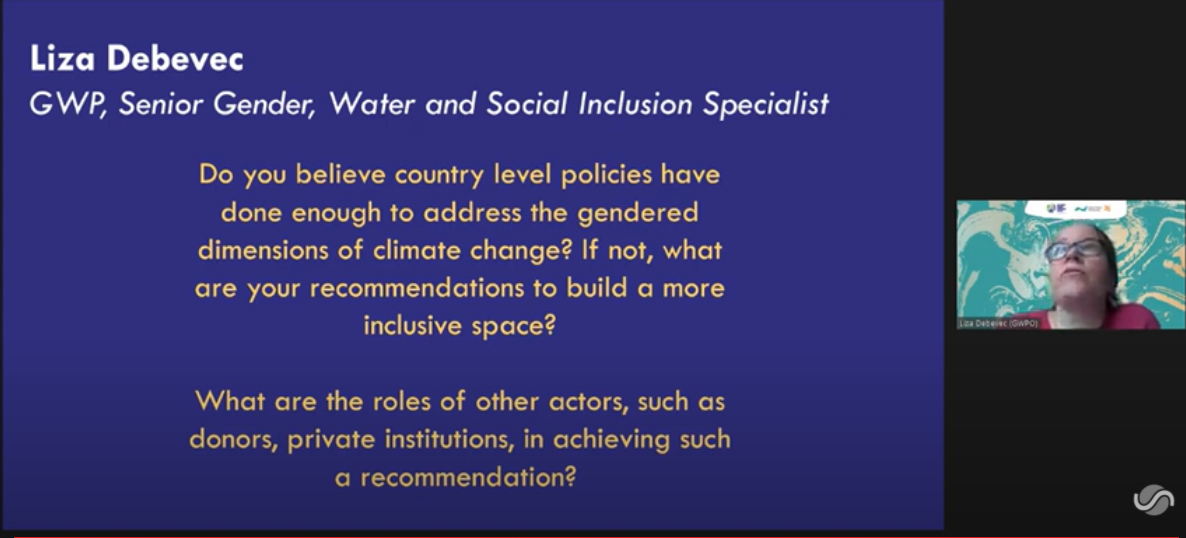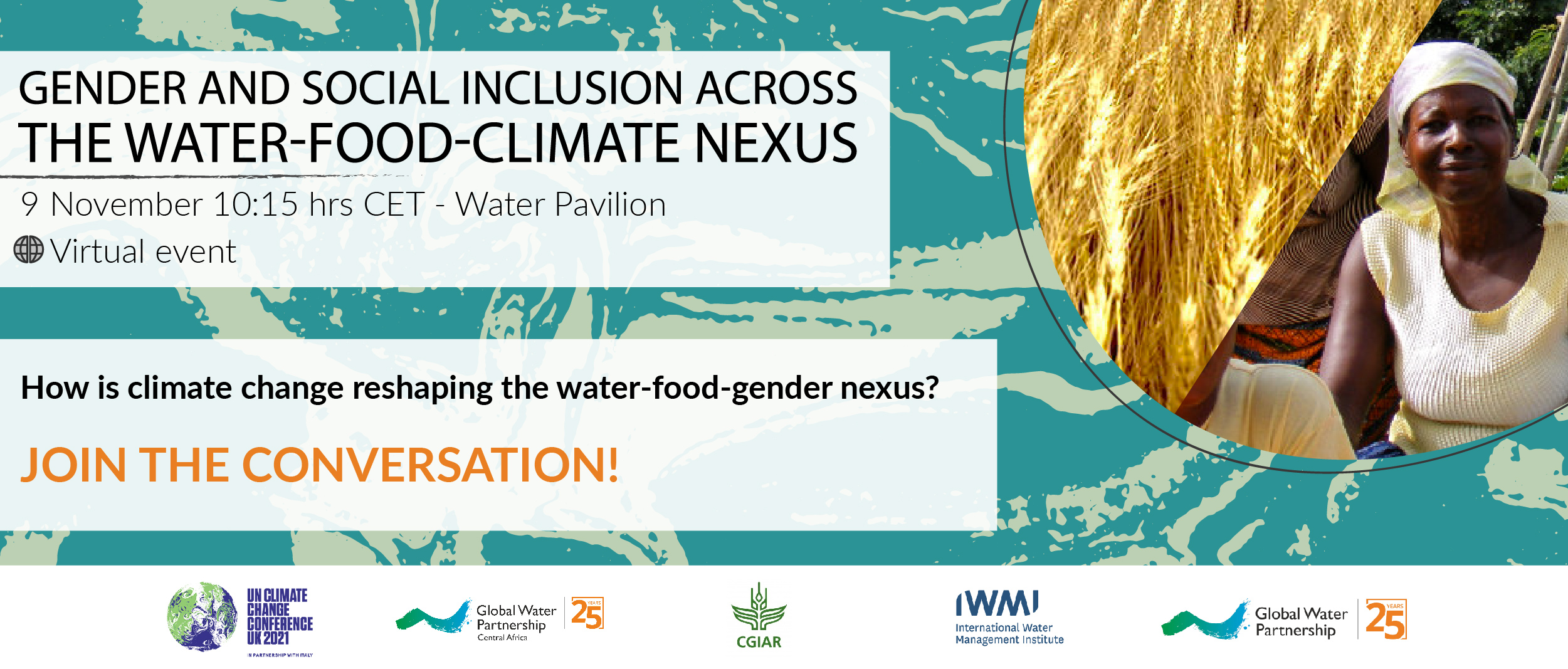The Gender, Water and Agriculture session looked at how climate change is reshaping the water-food-gender nexus with a focus on lessons to inform water, land and ecosystem restoration approaches that are intentionally designed to strengthen the resilience of climate-vulnerable communities and livelihoods across the Global South. The session organized by International Water Management Institute (IWMI)/WLE/CGIAR brought together researchers and practitioners from Asia and Africa to discuss ongoing interventions, which range from gender-inclusive to more gender transformative.
GWP-CAf’s Participation at COP26
GWP-CAf’s participation follows the validation by the steering committee of the SIWI Water and climate pavilion of a case study on how GWP-Cameroon with the financial support of the World Meteorological Organization (WMO) is supporting the Department of National Meteorology of the Ministry of Transport in Cameroon to strengthen farmers (especially women) resilience to climate change to improve agriculture. The session on empowering women across the water food nexus took place on the food and agriculture day of COP26 and reflects GWP Voices at COP26.
During the GWP-CAf event titled, “Securing the Next Good harvest: Water, Gender and Agriculture in Cameroon”, the Water, Climate, Development- Gender (WACDEP-G) Program Officer, Murielle Elouga set the scene by painting a picture of the harsh climate realities of the Far North Region including extreme droughts, deadly floods with devastating effects on livestock and crops, low annual rainfall – all of which greatly affect agriculture and threaten food security with a bigger impact on the vulnerable population especially women.

Agriculture, the main economic activity in the region is the most vulnerable to climate change and the women who are the main actors are not sufficiently equipped to deal with the unforeseen seasonal variations. The main gender issue in agriculture here is that women who are the main producers do not have a decision-making ability – they are more involved in planting and harvesting phase of agriculture and not the monitoring and planning phase.
This is partly due to the patriarchal nature of the society which places women second but mostly because they rarely have access to agrometeorological information, and when this information is available by the Department of Meteorology, they cannot use it because they are undereducated.

She then highlighted how GWP-Cameroon through the WACDEP-G program is supporting the department firstly through facilitating a multistakeholder dialogue to discuss mechanisms to collect and share agro-meteorogical information and most recently through a joint action funded by WMO to train local farmers on weather, climate and agriculture and facilitate the collection of apt climate information from the region.
This support was highlighted by the Director of the Department and Permanent Representative of WMO in Cameroon, Mr. Simplice Tchinda during his intervention at the session, “Our objective is to get climate information to the end users who are often in rural communities and working with GWP Central Africa made this easy for us”.

Key results from both activities were mentioned and challenges like the low participation of women linked to the patriarchal nature of the society, limited internet and phone network coverage hindering the transmission of in situ climate information and the low literacy level of mostly women were also made evident. Key lessons learnt and recommendations on how to best strengthen women’s resilience to climate change especially through taking into consideration the cultural context of the society in related activities were explored in detail. These continuous actions will empower and improve the decision making of female farmers which will eventually reduce food insecurity which affects about 33,7 % of the region’s population with 38% living below the poverty line.

In the sessions’ panel, GWPO’s Gender and Social Inclusion specialist, Liza Devebec shared ideas on whether country policies are doing enough to address gender issues related to climate change and the way forward to ensure the gender transformative approach is implemented in water, climate, and agricultural processes.
